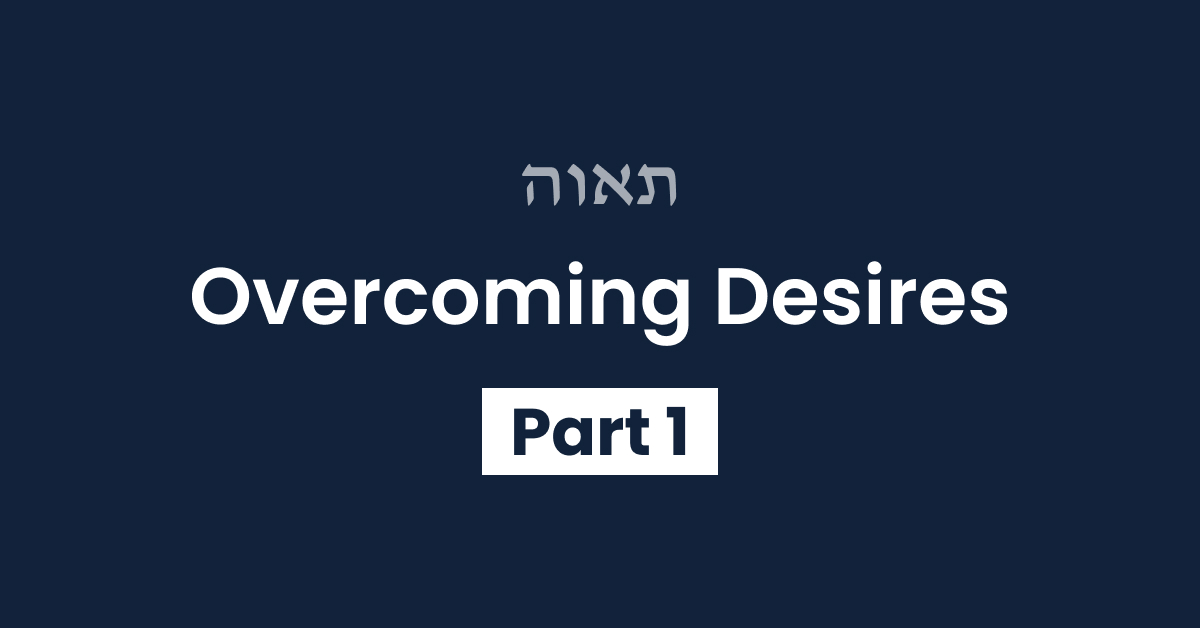Last week, we spoke about how the yetzer hara gets us to indulge in harmful temptations by tricking us with lies. Although we know intellectually that indulging in certain pleasures will hurt us – such as eating 3 pieces of cake when we’re on a diet – the yetzer hara hides the truth and makes us think that “this one little time wont make a difference.” The way to defeat this yetzer hara is by strengthening the voice of Truth and “turning up the volume” so we can hear the voice of Truth more clearly.
Aside from lying and misleading us, the yetzer hara uses a slightly different tactic as well, which is also related to falsehood: The power of illusion.
The power of illusion.
What is an illusion? An illusion is something that appears to be real, but actually does not exist at all – or exists in a drastically different form. For example, if you shine a flashlight onto the tiny hand of a 3-year old in a dark room, it will make a huge scary-looking shadow on the wall. But the shadow is not real. It’s just an illusion. As soon as you turn on the light, the shadow will disappear.
So too, the yetzer hara makes it seem as if our temptations are big and powerful, but if we turn on the “light” of clarity, we will see they are not real at all.
Blowing It Out of Proportion
What illusions does the yetzer hara create? He shows us the pleasures of this world, and blows them way out of proportion until we think they are more powerful than our self-control can handle.
He shows us the pleasures of this world, and blows them way out of proportion until we think they are more powerful than our self-control can handle.
How good does that pizza taste? The yetzer hara says: “It’s not just good – it’s AMAAAAZZZINNNGGGG!” How good are those chocolate peanut butter marshmallow bars? They’re not just good – they’re “TO DIE FOR!” If you look at recipe blogs and magazines, you will see that most recipe writers use this language. Since they are trying to tempt you to indulge in these pleasures, they use language that sounds powerful and overwhelming.
How good are those chocolate peanut butter marshmallow bars, really? You will enjoy eating them for the few seconds that they’re in your mouth, but then the pleasure will be over. Are they really “to die for”?
When the yetzer hara tempts us in this way, he is exploiting our Koach HaDimyon – our power of imagination. Hashem gave us a powerful imagination that we are supposed to use for good things, like imagining when we got the Torah at Har Sinai, or imagining the reward we hope to get in Olam Haba. But instead of using our imagination for the good, the yetzer hara harnesses this power to make us fantasize about pleasures that are harmful to our physical or spiritual wellbeing.1
I’m Not Your Slave
What’s so bad about fantasizing about physical pleasures? Why not let ourselves daydream about the pleasures we hope to enjoy?
Rav Yerucham Levovitz2 explains: Our Ta’avos (temptations) want us to believe that they are our masters, and we are their slaves. “Those brownies looks soooooo good” we might think to ourselves. “I just can’t control myself!” Or “I heard that movie is sooooo funny, I just HAVE to watch it!”
Our Ta’avos (temptations) want us to believe that they are our masters, and we are their slaves.
Who is a slave? A slave is someone who has no freedom and no sense of “self.” He has to completely nullify himself before his master. Every time his master calls, he has to hurry and run and say, “Here I am!” before he has a chance to think for himself whether he actually wants to do what his master is asking. A slave cannot refuse his master. Someone who turns his Ta’avos (desires) into his master is like a slave. He nullifies his own sense of independence and power of choice. He runs to fulfill its commands. (“Look! FREE PIZZA!! RUN!!!!”)
When the yetzer hara comes to us and pretends to be our master, Rav Yerucham writes that we have to respond in anger, and say: “No! I don’t care what you tell me! Who are you to tell me what to do?!”
We do not need to be slaves to our desires, and we can control them. Granted, there are unfortunately people who struggle with real addictions, but aside from real addictions, they are many times that we struggle with smaller types of temptations that we feel like we can’t control, but really, we can.
We do not need to be slaves to our desires, and we can control them.
How do we know this is true? Well, did you ever hold yourself back from eating, doing, seeing, or saying something very tempting? If you have, that means you have the power to control your temptations. Not every thought or feeling that crosses your mind must be acted upon. Just because you had the urge to eat that brownie or watch that movie, does not mean you need to follow through with eating or watching it. You are the master over your desires. They have no real power of their own. Although it may feel compelling to indulge in our desires, we do not need to give in to them, and a few hours (or even minutes!) later, that sense of urgency will fade. When you reflect a few hours later, you will realize they were just an illusion.
You are the master over your desires.
Just as the 3-year-old’s hand in real life was much smaller than that shadow on the wall, the pleasure that we actually experience from indulging in physical pleasures is usually much smaller than what the yetzer hara promises us. You might enjoy the pleasure for a few seconds, but soon after, it will be over. And meanwhile, you have let yourself turn into a slave, and let your Ta’avos (temptations) become your master.
This week, let’s try to show the yetzer hara who’s boss. Let’s show him that we are not his slave, and that we realize he does not have any power over us; he is just an illusion.
Sources: [1] Seforno Bereishis 3:1; Tzidkas Hatzaddik Vol. 2:208 pg. 84; Michtav Mei’Eliyahu Vol. 1 pg. 212; [2] Daas Torah Bamidbar 44
Your Challenge
Once a day, overcome your temptation to do something that you know is wrong, and think to yourself: “I am not a slave to my Ta’avah. I am bigger than it. I am its master.”
FOR EXAMPLE:
- Restrain yourself from eating food that you know is bad for you
- Restrain yourself from saying something that you think might be lashon hara
- Overcome your desire to stay in bed for extra minutes in the morning
- Refrain from wearing something that might not be so tznius
- Hold yourself back from buying something expensive that you don’t really need
- Restrain yourself from checking your phone multiple times within a few minutes
- Put your phone in a different room for 30 minutes or don’t sleep with it in the same room
- Withstand the temptation to finish every last drop of food on your plate; leave a bit over
- Refrain from watching a movie or reading a book that has questionable content
Torah Questions
- What is the first thing described by the Torah as a “ta’avah” (desirous)? (See Bereishis 3)
- After the Jewish people left Egypt, they said that they missed eating certain foods that they had been eating in Egypt. Name at least 2 of the foods they missed eating. (See Bamidbar 11:5)
- Why couldn’t the Mun taste like these foods? (See Rashi)
- When the Jewish people were traveling in the desert, the “Assafsuf” desired something. What did they desire? (See Bamidbar 11:4)
- Who were the “Assafsuf”? (See Rashi)
- The Gemara (Sotah 14a) says that Moshe Rabbeinu didn’t want to enter the land of Israel just to enjoy eating its fruit; rather because he wanted to _____?
- According to the Gemara (Pesachim 99b), what should a person do to make sure that he enters into Shabbos of Yom Tov with an appetite for food?
Questions to Ponder
- The Midrash writes that when a person dies, he doesn’t have even half of his desires in his hand. What do you think that means? Let’s say a person always wanted to become a millionaire, and he achieved his dream before he died. Didn’t he get everything he desired?
- The Midrash Tanchuma says that Torah Sheba’al Peh (the Oral Law) cannot be contained in a person who runs after the pleasures of this world. Why not?
- The Sefer HaChinuch writes that we shouldn’t stray after our hearts and eyes, because if a person gives in to their desires, they could eventually become a heretic (denying Hashem’s existence). How could succumbing to one’s desires lead to heresy?




